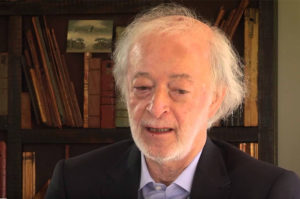“We are putting into practice a new paradigm in the gas industry”
Galileo Technologies drives the third generation of natural gas production and transport technologies through innovative methods for fields connected to pipelines and also for fields in remote areas.
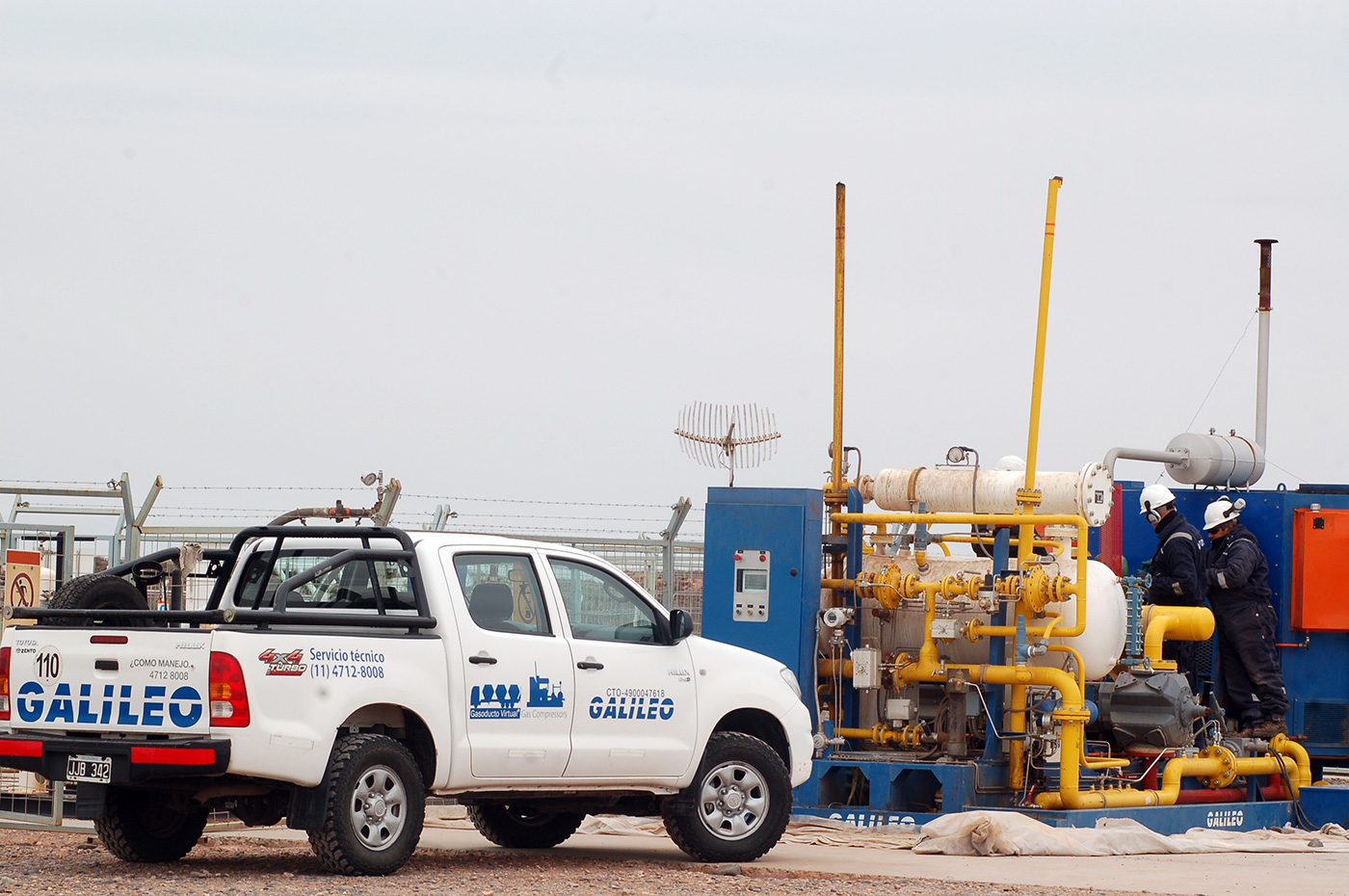
Galileo’s field services personnel during the commissioning of Galileo Process™ compressors in a mature well operated by YPF (Yacimientos Petroliferos Fiscales) in Loma de la Lata, Argentina
Following the need for further efficiency in the industry, Galileo Technologies stands out with their innovative vocation, introducing a new concept and new technology in gas production in Argentina. “Now that unconventional gas gained notoriety, we cannot deny the unique particularities and characteristics of this resource – that’s exactly why it must be produced via unconventional methods”, explains Osvaldo del Campo, Galileo Group CEO, during his interview with Revista Petroquímica.
In that regard, he adds, the company developed two revolutionary technologies: one, for gas fields connected to pipelines and, another one, for gas fields in remote locations. “In the first case, we have been promoting the distributed compression advantages for a long time. It should be considered that 15 or 20 years ago, a normal field layout implied connecting wells through a flow line, a network linked to major compression stations that increased power and volume as the field depleted. We brought to the country the concept of well-head compression to distribute that compression power that used to be concentrated in major gathering stations”, he specifies.

Osvaldo del Campo, CEO of Galileo Technologies
So, when the field depleted, the increased power reached directly the well heads. “Nowadays, this process turned into a standard, and all the oil companies in the country, including larger and smaller ones, switched to this concept that proved to be extremely reliable and efficient. But, as usual, we decided to improve this method”, he stresses.
What is this innovation about? was our next question to del Campo.
This is about a diagram to perform the compression process directly at the well, eliminating the intermediate (gathering) station. This enables the reduction of diameters and, consequently, of infrastructure costs.
It is virtually possible to halve the field CAPEX and OPEX budgets, keeping the same configuration throughout the useful life. Further power can be added to the well head without modifying diameters, equipment, separators, etc.
We should stress that this cost reduction, which is sustained over time, is vital for the initial production period. We’ve verified so in several conventional fields, and we are sure that this new technology will contribute significantly to unconventional gas development.
But also, through this technology, production levels can grow aggressively. In fact, by adding well-head compression to certain wells, we reached productive gains between 50% and 300%.
This is definitely an unconventional way to operate new wells or existent wells connected to pipelines.
Which alternatives does the company offer for disconnected wells?
As we all know, connecting a well is not always possible. Sometimes, by drilling, we find a gas volume that would not justify a pipeline; so, the well remains disconnected. According to estimates, only 2,000 out of 57,000 drilled wells in the national territory are connected to the gas system. Not all the disconnected wells are productive; however, many of them are.
We are putting these disconnected wells into production through our Virtual Pipeline technology, introduced several years ago in Argentina to connect users with pipelines. We connect these wells to pipelines or end users, without going through the system.
At the same time, we are the only company in the world that developed small-scale liquefied natural gas (LNG) technology to liquefy gas directly at the well head and to take it to the user through the Virtual Pipeline, without intermediates. This way, producers have the chance to monetize their gas simply and effectively.
In other words, we are putting into practice a new paradigm in gas industry: 3-G natural gas (concept that refers to the third generation of technological innovations in the sector).
What stage has the implementation of this initiative reached?
We have just taken the first steps to apply our LNG technology to Neuquén fields. And a production Virtual Pipeline is already being operated by compressed natural gas (CNG) in Comodoro Rivadavia. There are three oil companies making use of these gas transport alternatives.
On the other hand, the first LNG units in the country are already operative, and they produce the LNG that propels Buquebus’ Francis Pope ferry.
The Virtual Pipelines range, originally propelled by CNG, extends its barriers almost limitlessly through LNG.
As far as we understand, in order for Argentina to give value to Vaca Muerta immense resources, something new must be invented. It won’t be easy to increase gas penetration in the energetic matrix from 50% to 70%. Implementing a new business model will be necessary.
That’s why we believe we’ll change the industry paradigm again, as we did at the end of the 80s, at the prime of Loma La Lata’s development, when we invented the CNG business in Argentina (a market that currently requires expansion to the public and freight transport). The gas is Argentine; so should be the technology to exploit it.
Which are your expectations for 2016?
We expect the industry to continue growing next year. With the current oil prices, the general consensus is to focus, preferably, on gas, and this is very encouraging for us.
Furthermore, we estimate that the industry demand will keep its upward trend and we are ready to follow that. Our company has been growing constantly for the last 25 years and we are certain that we’ll keep the same track.
Resource: Revista Petroquímica, December 2015 edition.
Related news
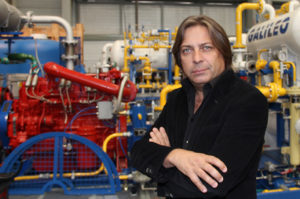
Gas production has become more demanding
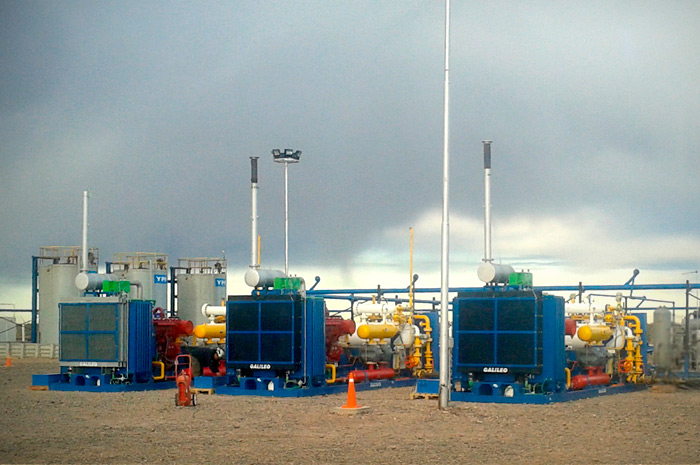
More Galileo compressors for Vaca Muerta shale gas
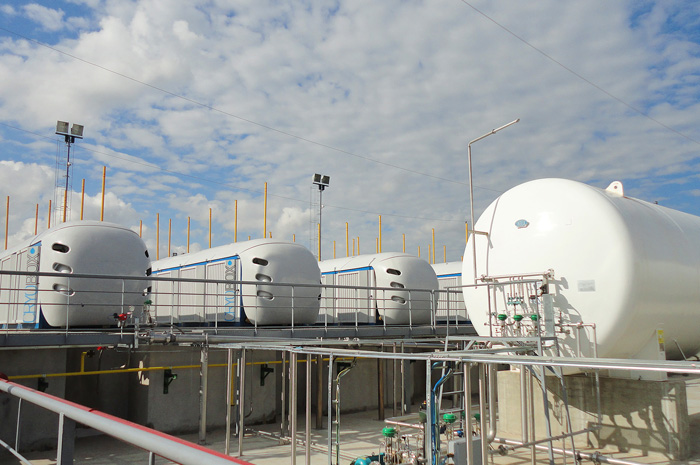
The Argentine President inaugurated the plant equipped with the Cryobox that provides Buquebus with LNG
